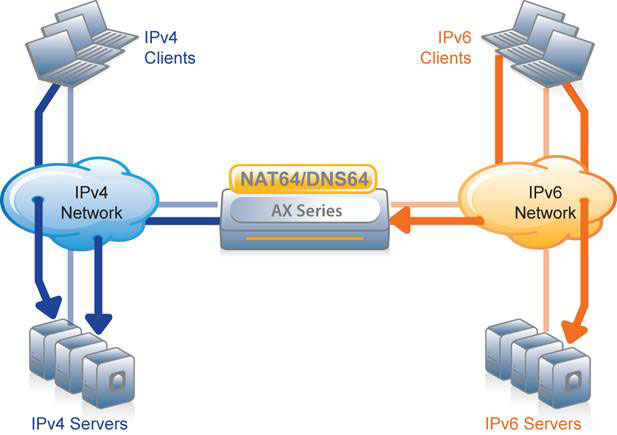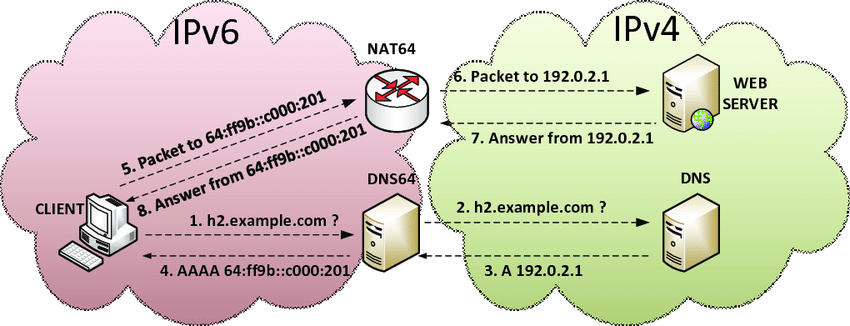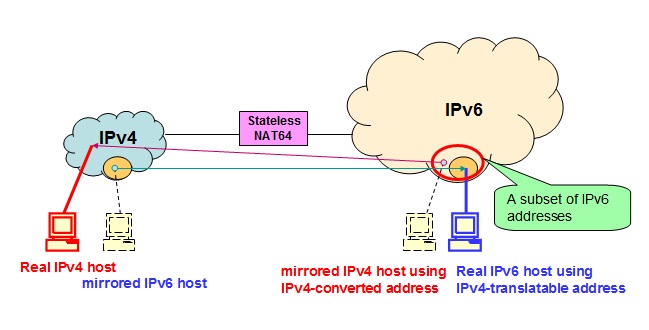Everything You Need to Know About IPv4 vs. IPv6
The “IP” in IPv4 and IPv6 stands for Internet Protocol, which is a set of rules that determine how devices transmit data packets across the Internet. Internet Protocol also assigns a unique address to each device on the web. These addresses ensure data packets are routed to the correct device.
What is IPv4?
IPv4 or Internet Protocol Version 4 is the most common protocol for transmitting data packets on the web. IPv4 provides both the identification (IP addresses) for each device on the Internet and the rules that govern how data packets are transmitted between those devices.
With IPv4, a typical IP address has 32 bits and is in dotted-decimal form, like this:
192. 0. 2. 235
Because there are only 232 unique hosts in this decimal format, there are only about 4. 3 billion IPv4 addresses.
What is IPv6?
There’s been a massive increase in devices connected to the Internet in the last decade—with a rise from 5 Internet devices per household to 50 Internet devices per household from 2015 to 2020. This prompted the Internet Engineering Tracking Taskforce (IETF) to create a new Internet protocol, IPv6. It was released in December 1998.
IPv6 addresses are written in hexadecimal format, like this:
2001:0db8:85a3:0000:0000:8a2e:0370:7334
The Pros of IPv4 vs. IPv6
Despite IPv6 being the newer, updated IP, there are still many advantages of IPv4.
Existing infrastructure – Most websites use IPv4, even those that also support IPv6. This makes version four a more seamless experience. That is, until most of the Internet switches to version six.
Simplicity – IPv4’s 32-bit dotted decimal is much smaller and simpler than IPv6’s hexadecimal numbers. This simplicity is easier for humans to read.
Support – Because most traffic is still using IPv4, Network operators find IPv4 familiar. They may wait until more traffic is IPv6 before they make any decisions about their own infrastructure—especially if they have enough IPv4 addresses for the near future.
The Cons of IPv4 vs. IPv6
Running short on IPv4 addresses isn’t the only con of version four.
Exhaustion of IPv4 – As we’ve covered, the world is short on IPv4 addresses. This means there’s a cost to buy IPv4 addresses, where IPv6 addresses can be had (in unimaginable quantities) for the cost of registration with a regional registry (RIR). You also pay registry costs with IPv4.
IPv6 Speed – Web and cloud services provider, Akamai, measured the speed of IPv6 vs. IPv4. They found, “Sites load 5% faster in median and 15% faster for the 95% percentile on IPv6 compared to IPv4. ”
Network Address Translation (NAT) for IPv4 – NAT allows a group of devices (usually 10-20) that share a single public IP with IPv4. This requires complex configurations like forwarding and firewall alterations. Because IPv6 has so many addresses, IPv6 devices don’t require additional configuration.
Understanding the IPv4 market
The pros of IPv4, combined with the lack of addresses, created a new marketplace. Today, companies that need IPv4 addresses can buy them through IPv4 Brokers, or a company looking to move to IPv6 can sell IPv4 addresses.
When a company needs more IP addresses, they have three options:
Buy IPv4 addresses – That’s what is here for. Companies can also sell their IPv4 addresses if they’re beginning to deploy IPv6.
Use NAT – As mentioned above, NAT allows one address to be shared among many devices. However, NAT still requires one IPv4 address (usually one per 10-20 people). This has some drawbacks, namely speed issues as packets have to transition paths.
Deploy IPv6 – A business can deploy IPv6, but this may be of limited usefulness until most traffic is also on IPv6. So, even if a business deploys IPv6, it still needs more IPv4 addresses or NAT.
In Conclusion
There’s much debate around which is better—IPv4 or IPv6. But really, it’s about your specific needs. If you’d like more information on the differences between IPv4 vs. IPv6, or if you’re looking for help with either, please reach out to us today.

IPv6 benefits: Faster connections, richer data | Network World
The benefits of IPv6 over IPv4 are many, but to reap them enterprises need to enable their networks to support the newer protocol, starting with Wi-Fi upgrades.
Mikko Lemola / Getty Images
The business advantages of IPv6 are many, including direct customer access to websites, faster end-user experiences with Internet applications, and the opportunity to gather data about visitors to applications as well as measure visitors’ engagement and conversion. Without NAT, IPv6 is faster than IPv4If your organization offers a public website or internet or mobile applications, then it is likely that your site will function faster when using IPv6 vs IPv4. That’s in part because of the proliferation of network-address translation (NAT) by service providers for IPv4 Internet rriers lack sufficient public IPv4 addresses to provide unique addresses to all of their subscribers so they channel them through a massive NAT using a pool of public IPv4 addresses. IPv4 traffic that hits carrier networks typically goes through one or more NATs and is backhauled through centralized carrier-grade or large-scale NATs where customer connections compete for TCP/UDP port space, connection limits, and bandwidth. All this NATing requires recomputing TCP and UDP header checksums which introduces delays in the delivery of contrast, most mobile and broadband subscribers now have native IPv6 on their devices. The IPv6 packets don’t pass through carrier NAT systems and instead go directly to the Internet. The lack of NAT usage by IPv6 means that TCP and UDP header checksums do not need to be re-computed like with IPv4.

Differences between IPv4 and IPv6 – Linksys Official Support
The Internet Protocol version 4 (IPv4) is a protocol for use on packet-switched Link Layer networks (e. g. Ethernet). IPv4 provides an addressing capability of approximately 4. 3 billion addresses.
The Internet Protocol version 6 (IPv6) is more advanced and has better features compared to IPv4. It has the capability to provide an infinite number of addresses. It is replacing IPv4 to accommodate the growing number of networks worldwide and help solve the IP address exhaustion problem.
One of the differences between IPv4 and IPv6 is the appearance of the IP addresses. IPv4 uses four 1 byte decimal numbers, separated by a dot (i. e. 192. 168. 1. 1), while IPv6 uses hexadecimal numbers that are separated by colons (i. fe80::d4a8:6435:d2d8:d9f3b11).
Below is the summary of the differences between the IPv4 and IPv6:
IPv4IPv6No. of bits on IP Address32128FormatdecimalhexadecimalCapable of Addresses4. 3 billioninfinite numberHow to ping ping
Advantages of IPv6 over IPv4:
IPv6 simplified the router’s task compared to IPv4. IPv6 is more compatible to mobile networks than IPv4. IPv6 allows for bigger payloads than what is allowed in IPv4. IPv6 is used by less than 1% of the networks, while IPv4 is still in use by the remaining 99%.
Related Articles:
Checking the computer’s IPv6 AddressHow to verify if your system is capable of IPv6 connectivityLinksys devices that support IPv6
Frequently Asked Questions about ipv4 vs ipv6 speed
Does IPv6 affect Internet speed?
Without NAT, IPv6 is faster than IPv4 If your organization offers a public website or internet or mobile applications, then it is likely that your site will function faster when using IPv6 vs IPv4. … The IPv6 packets don’t pass through carrier NAT systems and instead go directly to the Internet.Jun 10, 2019
Is IPv6 better than IPv4?
The Internet Protocol version 6 (IPv6) is more advanced and has better features compared to IPv4. It has the capability to provide an infinite number of addresses. It is replacing IPv4 to accommodate the growing number of networks worldwide and help solve the IP address exhaustion problem.
Is IPv6 safer than IPv4?
IPv4 vs IPv6 security: which one is safer? IPv6 was made with security in mind, so, when implemented correctly, it is more secure than IPv4. IP Security (IPSec) is a series of IETF security protocols that promote authentication, security and data integrity that’s built into IPv6.Sep 3, 2021

